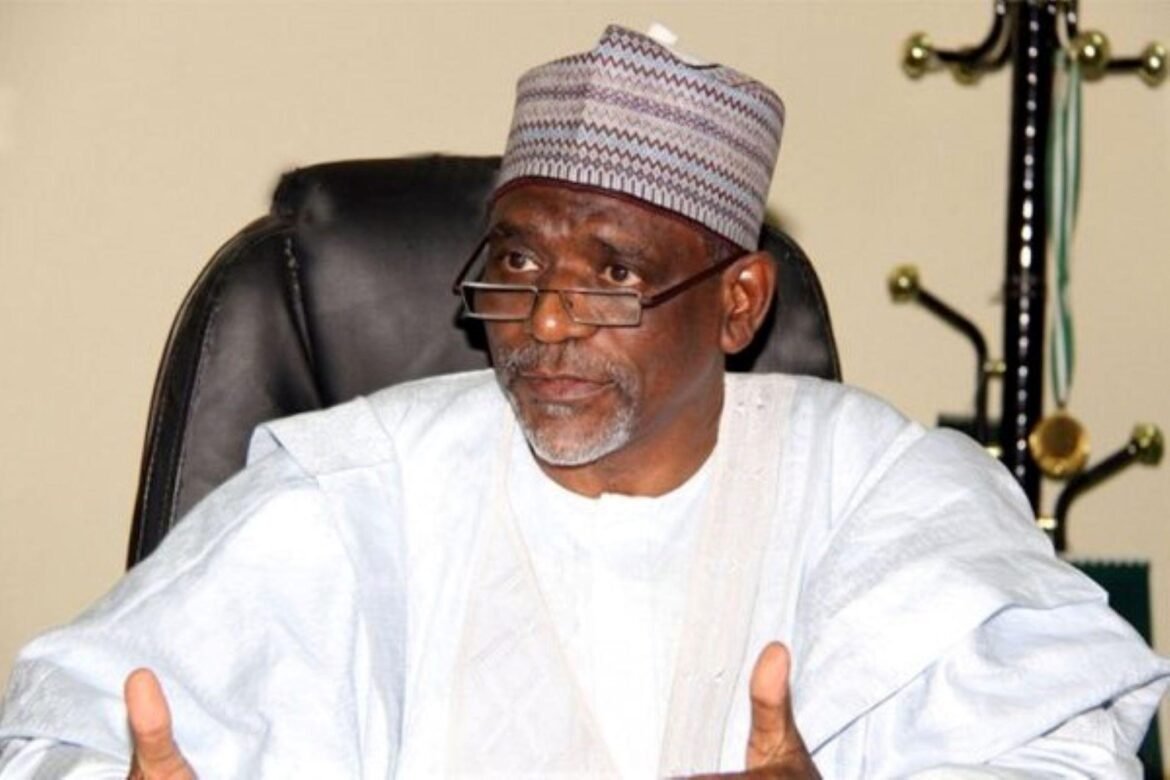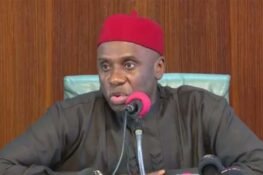In preparation for my high school alumni reunion, I have been poring over content that make me shudder at the shoddiness in the once famous Nigerian schools, as all levels of government have vacated duty post like an irresponsible father.
It is clear that the public school system is in a vegetative state, kept on life support by benevolent old student associations and other charitable activities ensuring that students squeeze a little life from a school system that has failed them terribly.
Across Nigeria, illustrious schools have become ugly antiquities. Their infrastructure, not properly maintained, are a shamble.
Collapsing roofs, dilapidated structures, broken windows and doors, worn furniture, bare science laboratories and libraries without books have become a feature.
Those who attended high schools up until the early 1980s can testify to their inner beauty and outward efficiency. The schools were well fitted to deliver high quality education.
These schools easily compared to those in other countries, with their manicured flowers, immaculate facilities and a long list of staff from teachers to gardeners, laboratory assistants, bus drivers, laundrymen, cooks, matrons and security guards.
Past generations showcased their power of imagination and organization through the history of their schools.
They toiled to give good education to a new generation of their communities. They did all in their power to empower their children. They built out of nothing and bequeathed a legacy that today’s generation have destroyed.
The remarkable accomplishments of heroes past ought to be nurtured with joy and eagerness. But new-generation politicians and public administrators are converting glory into an eyesore.
Instead of spending on facilities, state governments, who now own most of the schools, have given up, in many cases openly passing the buck to the alumni of each school.
The former Ogun State Governor, Ibikunle Amosun, in 2016 captured the reality and the resignation of government in its most sacred duty to future generations.
Speaking in a manner representing the absurd situation in most of the schools, Amosun stated that old students and alumni associations have become part of the school administration.
While speaking at the convocation of assembly of old students/alumni associations of Western Nigeria in Abeokuta, he remarked: “I am convinced the surest way to restore the glory and pre-eminence of our education sector is to effectively harness the massive size and passion of our old boys and girls associations.”
It could not be clearer that the state governments had abdicated their role as the bonafide owners of the schools.
Instead of spending on facilities, state governments, who now own most of the schools, have given up, in many cases openly passing the buck to the alumni of each school
Alumni associations, even if they have to give back to their schools, are set up for a wider range of goals and benefits for their members. They should not expect to take over the nursing of schools disowned by the government.
In some ways, one could soberly understand that any expectation that the government will take serious steps to rescue these schools and help the students will be totally impractical. The same governments cannot even pay salaries or provide basic supplies that teachers and students need.
Asking for buildings to be repaired when teachers have not received salaries is unimaginable. But the same governments do find money to spend on unproductive ventures such as sponsoring pilgrims to Mecca and Jerusalem. Some state governors have such a large retinue of advisers that defending their incapacitation is unreasonable.
Governance may have failed in just about every area of life in most of Nigeria – whether it is in the provision of electricity, roads, water or security – but education is the key to development. The nation stays in the dungeon when public education collapses.
Public schools provide the building blocks for the future of most Nigerians. Without it, young people face undeserving hardship.
Students being given substandard education through no fault of theirs are being offered a hard-knock life with results that may be irreversible.
No one ever said education should be cheap. In their glory days, the great schools required tuition and boarding and were never free. Without money, good schools can neither be established nor maintained.
However, the cost was not too much for ordinary people to afford because they understood that decent education was pivotal. They also did not have to stuff the pockets of corrupt officials because they did it all by themselves.
The foray of the state governments into high school education was the beginning of the erosion of standards in public education in Nigeria. While the government had the wherewithal initially, as soon as petrodollar dried up, cracks appeared on the walls of our schools.
The myopic policy decision to grab the schools under the military has been a slow poison; and the failure to return them under civilian administrations has been a killer poison.
Unable to pay school bills, state governments have now left the difficult task of keeping school doors open in the hands of former students. Irresponsible governments ask for donations like beggars from old students, to whom such requests should not be an obligation.
Alumni associations, unable to dissociate from the schools they love, give anyway.
The government cannot be begging cap in hand for handouts from citizens while it lavishes funds on unworthy projects
This means that the alumni have become a sort of private school owners through no wish of theirs. While the alumni have a moral duty to fulfil, it is totally wrong for the government to abdicate its responsibility.
There are additional challenges. The parents who are comfortable enough will not send their children to decaying public schools. Falling standards has created a farm of private schools at all levels.
Those who can afford to ensure their kids avoid public schools from the elementary to university levels. Religious bodies and private businesses are making a killing from the provision of private education.
While private participation in the education system is not entirely bad, it is dangerous to create two groups of Nigerians – the rich and the poor – who do not know each other due to lack of interaction.
The creation of the social strata will push Nigeria towards potentially difficult sociological and political problems, some of which we are already experiencing through armed banditry, Yahoo Boys, area boys and other such phenomena.
It is immoral and unconscionable to leave the children of the poor behind in deteriorating schools.
The absence of good public education is also a holiday from future peace and harmony.
Those who have will do themselves a whole lot of good by investing their money in the failing schools than the segregated private education system that pitches future generations of Nigerians against each other.
Schools and students need a diversity of student from various backgrounds, which is denied when the children of the well-to-do fail to mix with their opposites through their entire school experience.
At the end of the day, the largest share of the blame is with the government, which should either run the schools as they used to be or return them to their founding communities to manage.
Community organizations ran better schools.
Public schools should be truly publicly funded and administered.
The government cannot be begging cap in hand for handouts from citizens while it lavishes funds on unworthy projects.
Yes, the alumni will chip in to support their schools, but they are not co-owners. They are not the shield for irresponsible governance.
Nothing is more important than the future of the children. Public budgets need to tell that story.








